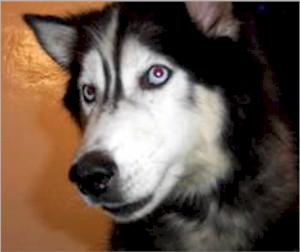PLEASE REMEMBER, THAT ALL DOGS CAN BITE!
Why?
Because a dog's teeth are his only arms.
Where?
Most dog bites occur on or near the dog owner's property.
When?
-
Your seemingly innocent actions may cause a dog to bite.
-
Many bites occur when a dog is playing with a person.
-
A dog who is sick or injured may bite anyone who comes near.
-
Teasing, harassing, or confusing a dog can cause him to bite.
-
A dog that is frightened or cornered may bite.
-
A confined dog in a fenced yard or chained up or very close to his home may bite to protect his home territory.
-
A mother dog with pups may bite.
-
A dog that is chasing something or someone may bite at it or them (bikes, cycles, joggers, pedestrians).
-
A dog that is fighting with another dog may bite anyone who interferes in any way, including his owner.
Who?
In a recent study, more than 79 percent of those people bitten knew the owner of the dog before they were bitten. More than half the people bitten are under the age of 15, with most being between four and nine years of age.
Whose fault is it?
In Virginia, the owner or custodian of the dog may be liable for any damage or injuries caused by the dog. In a court of law, the owner or custodian would have to prove that the victim was trespassing or teasing, tormenting, or abusing the dog on the dog owner's property.
Trespassing?
Your mail carriers as well as your water, gas, or electric meter readers have a right to be on your property in the performance of their jobs.
Prevention for the Dog Owner
-
Never let your dog or puppy bite or mouth the skin of a person, even in play.
-
Beware of the ill or injured dog. Follow your veterinarian's advice in handling him.
-
Do not allow your dog to snap or growl at anyone. If you fail to properly train the dog, the dog may become vicious.
-
If your dog has not been raised around children or other people, do not permit them to chase, corner, or pick up the dog, especially if the dog is more than four months old.
-
Never ask anyone to keep or care for a dog that they are afraid of.
-
Never allow your dog to run with or chase people.
-
Above all, never leave your dog out, unconfined, without proper supervision.
-
Do not pat or praise your dog when he shows viciousness. Your patting may make the dog think that he's pleasing you. If you allow this to go on, he may even bite you when you try to stop him.
Preventing a Bite
-
DO NOT RUN AWAY, unless you are sure that you can out distance the dog and find shelter.
-
Do not corner, rush at, or attempt to pick up a strange dog.
-
Do not touch a sleeping or eating dog.
-
You might try saying "GO HOME!" in a sharp commanding tone, or "SIT!"
- Do not scream because it may startle the dog into biting.
-
Shake your keys or make a noise to distract him.
-
If he actually does grab for you, stick something in his mouth like a purse, stick, or gloves -- anything but you.
-
Try to stay calm, because your fear can lead to the dog's confusion or cause him to bite.
-
Never tease a dog or reach into a car or fenced yard to touch a dog.
-
If you are on a bike, get off and put the bike between you and the dog.
-
If you cannot get away from the dog that is attacking you, lay face down on the ground and cover your head with your arms and lay perfectly still.
If You Are Bitten
-
Watch where the dog goes and try to find out who its owner is.
-
Report the bite to the Prince William County Police Department at 703-792-6500.
-
Wash your wound immediately with soap and water. Consult a medical professional because the possibility of infection from bite wounds is quite high, in addition to the threat of possible rabies.
-
Visit the Prince William Health District's webpage on animal bites and rabies.
Remember: The law requires that all animal bites be reported!
|

Hey Kids!
Color these pages and
figure out how to prevent dog bites!
|
